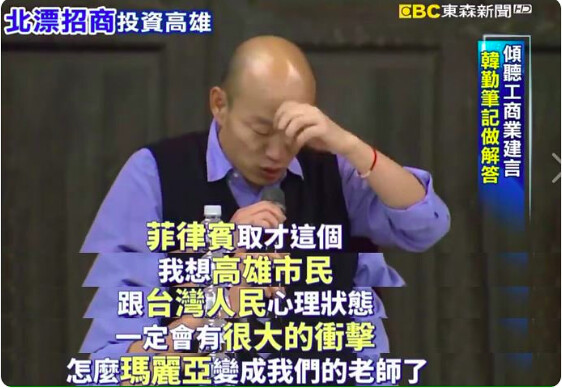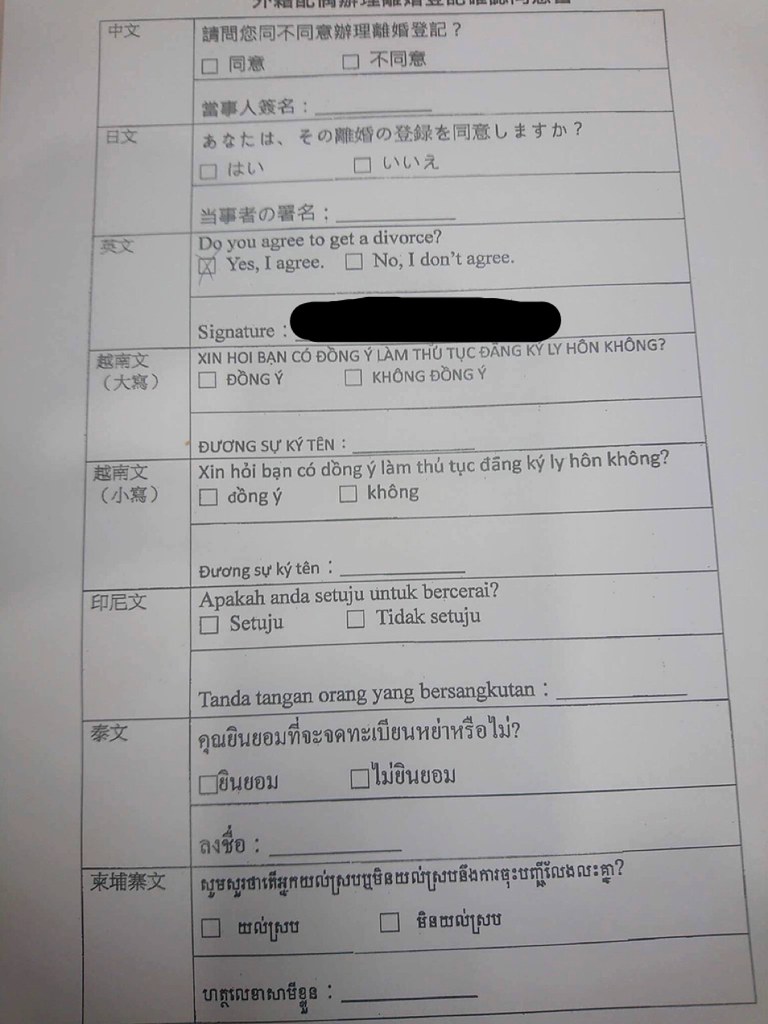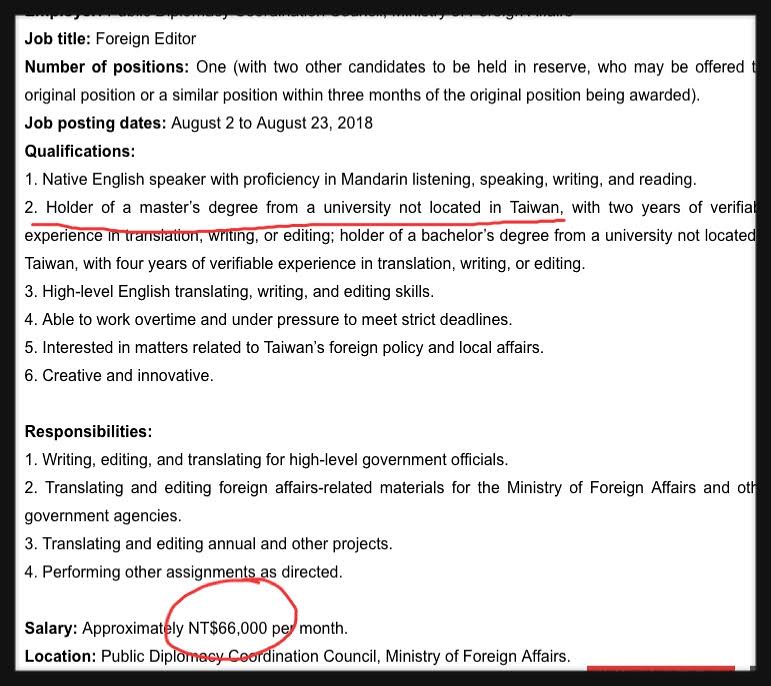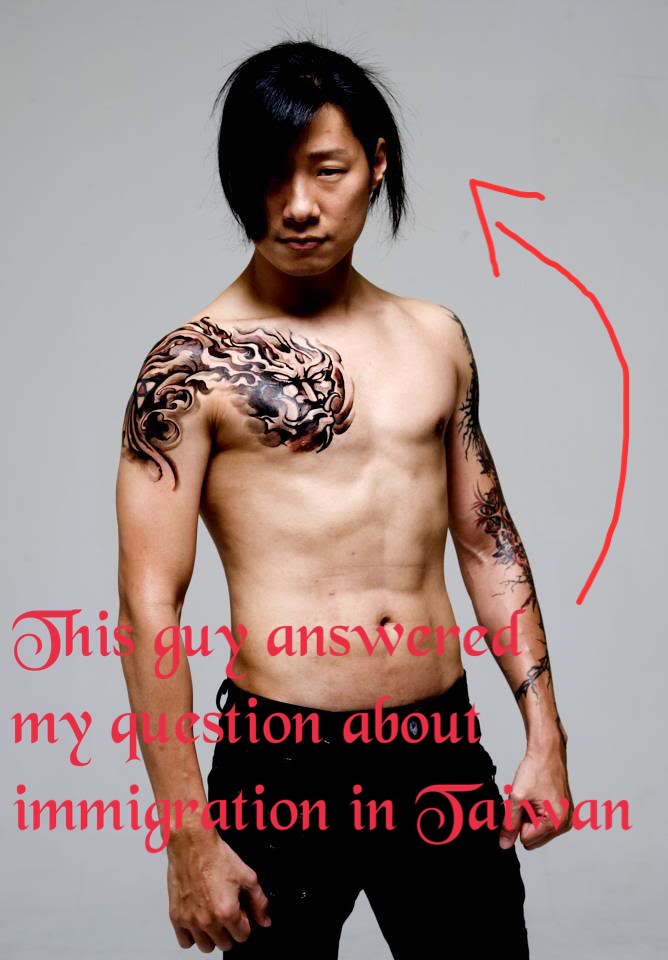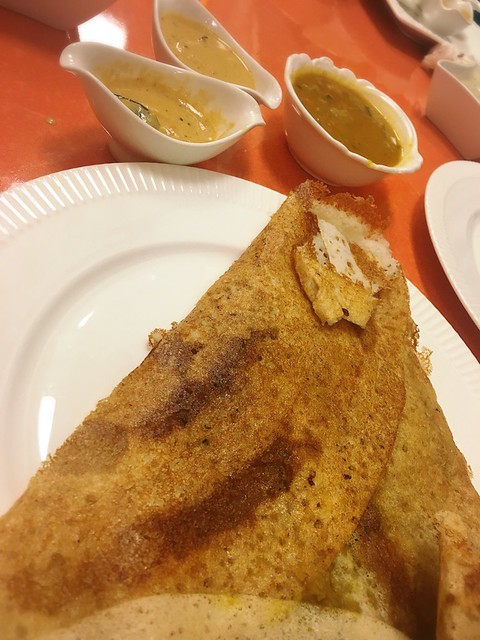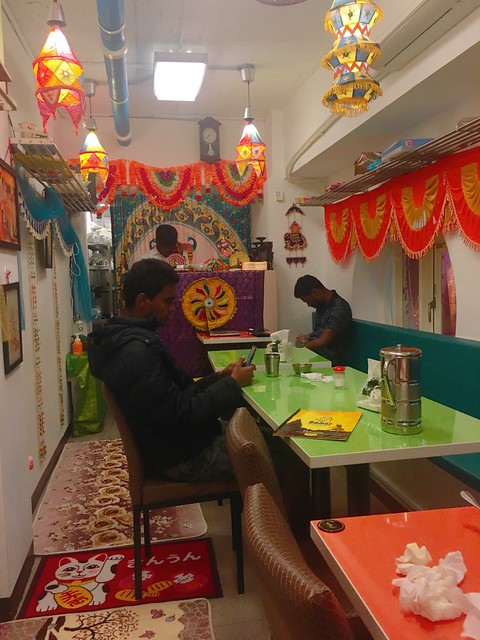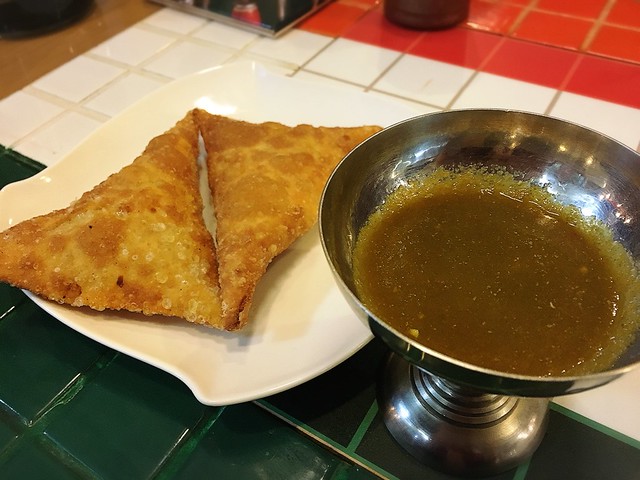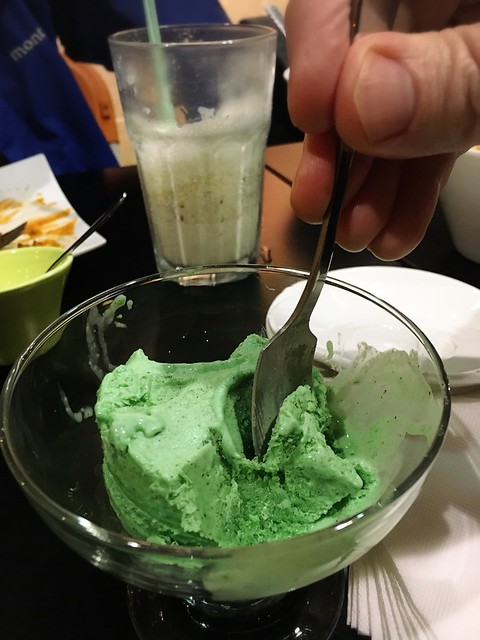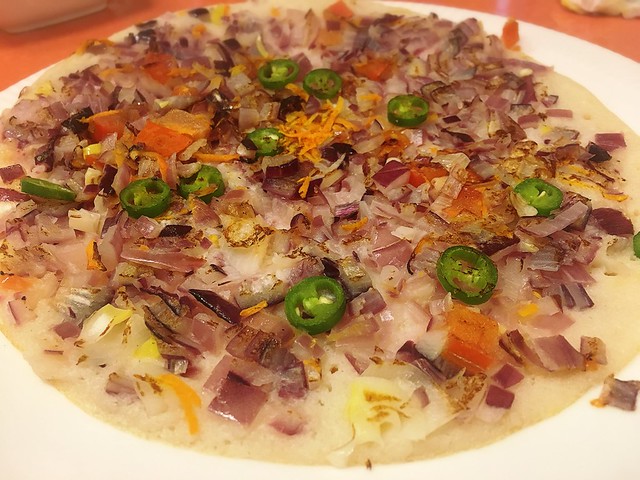Of course, this assumes that something is done properly in the first place, which isn't always the case (see: every English language education initiative the government has ever announced).
But yesterday, YouBike did (mostly) the right thing, and so fast that the news cycle could barely keep up with it.
After the news broke that YouBike's new insurance scheme wasn't available to foreign residents or tourists, and therefore foreign residents and tourists could not register their EasyCards to use YouBikes normally but would have to go through complicated and expensive processes each time they wanted to rent, we positively tsunamied them (I made a new verb!) with complaints.
Within a day those of us who complained by e-mail received a reply that they would talk to the Department of Transportation about the issue, and then they actually did so. Now, foreign residents would be able to register their EasyCards to use YouBike on December 24th. (This is quite acceptable; it will surely take time to update the code).
The city government even released a statement acknowledging the volume of complaints:
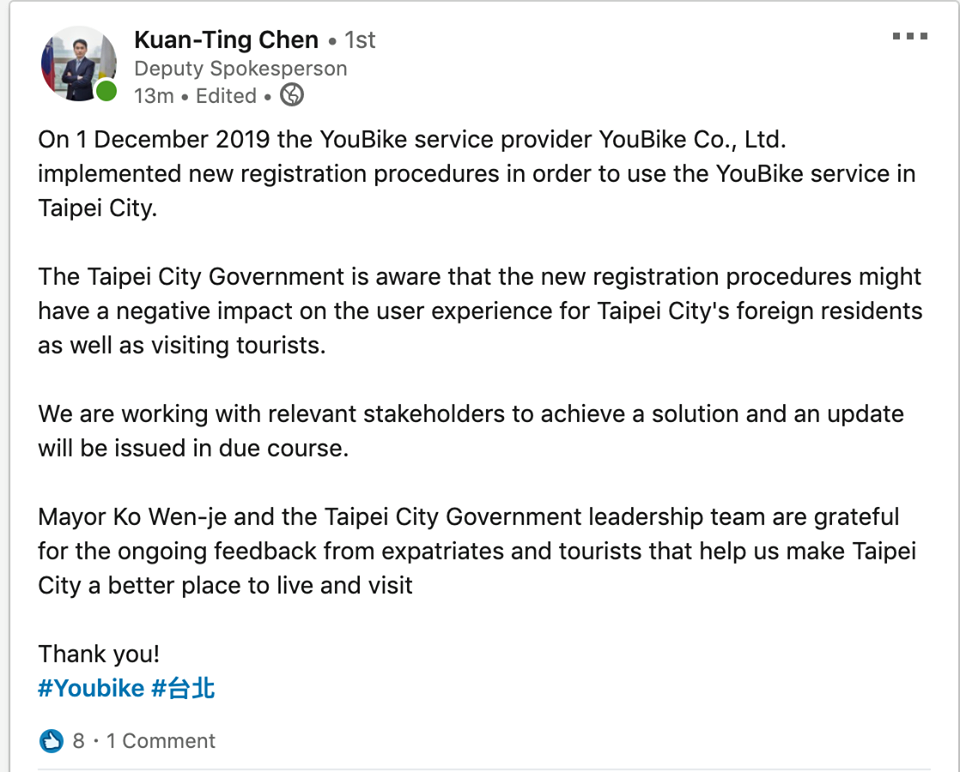
I honestly believe that in the country I come from, those complaints would have simply been ignored. If a solution came, it would be long after the fact with no clear notification made. (Not that any American cities except New York have remotely acceptable public transportation in the first place, mind you, and even New York's transit smells end-to-end like pee). If you were lucky you might get a form letter in reply that did not actually address your issue in any substantive way.
There are good and bad things to say about the course of events. I'm in a positive "we got stuff done!" in a positive mood, so let's start with the good.
What we've learned from this is that speaking up works. It works!
There were a lot of comments on social media saying we were just "complainers", "first world whiners" or "guests in this country" who should never complain, or that we couldn't possibly get the problem fixed so the only choice was to accept it.
What they didn't realize was that this wasn't whining, it was strategy. The more people make noise, the more likely the problem will get fixed. If even 5% of the people who read this post wrote to the city government, that's still several hundred e-mails they received.
And we did get the problem fixed, so all those "don't complain, you can't change it" people were simply wrong.
That doesn't mean everything's great because the problem is solved, however.
Tourists still have to go through the more cumbersome process of one-time rentals, which require an NT$2000 deposit on a card which is not refunded for up to 15 days. The process also takes a lot longer, and it's frankly silly that Taipei city encourages tourists to get EasyCards but then doesn't make them useable for YouBikes. The city rolled out YouBikes in part to appeal to tourists, and routinely recommends tourists use them (here's one example, originally published in Taipei magazine. Making rentals annoying and expensive for tourists is self-defeating when all they have to do is add code to the system that opts foreign visitors out of the new insurance scheme that caused this whole mess.
And, of course, the quick turnaround we got on this issue does highlight "expat privilege" to an extent. I discussed the issue with a few students who said they didn't think of the Taipei city government as particularly responsive, and we may have gotten the problem solved in a day simply because we were foreigners. Not only that, but we were mostly (though not entirely) white "expat" foreigners who tend to get preferential treatment.
To be frank, that almost certainly played a role. Let's not pretend it didn't.
Which means that, if we can make change by speaking out as a privileged group, maybe we should do that more often, in service of goals that benefit people who are more likely to be ignored by the powers that be.
Finally, there's the fact that this simply should not have been a problem in the first place. I doubt it was active discrimination, but rather that the impact of the new policy on non-citizens was simply not considered. That results in discriminatory impact. Discrimination can exist in impact just as much as intent (if not more so).
To avoid these sorts of issues in the future, the government can't just passively ignore the foreign community and pretend that's the same as 'not discriminating'. It has to actively consider its actions through the lens of understanding that the city it governs has foreign residents, too, and that its tourism strategy should be coherent and synchronized across departments.


